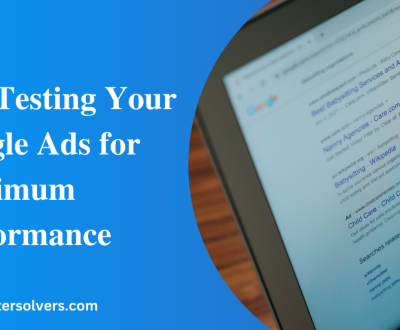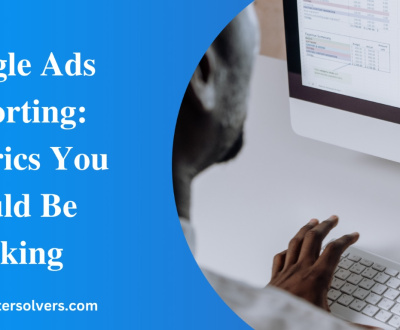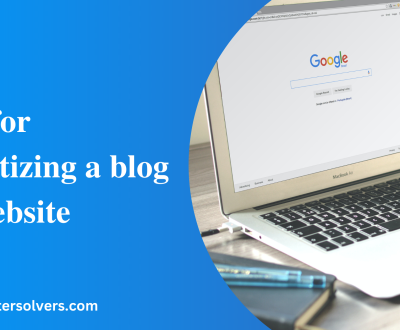Google Ads vs. Facebook Ads: Which One Should You Use?
Introduction
In today’s world, online advertising has become an essential part of any business’s marketing strategy. With so many options available, it can be challenging to determine which platform will provide you with the best results. Two of the most popular advertising platforms are Google Ads and Facebook Ads. Both platforms have their unique features and advantages, making it difficult for business owners to choose between them. In this article, we will explore the differences between Google Ads and Facebook Ads to help you decide which platform is best for your business.

Google Ads vs. Facebook Ads: The Basics
What are Google Ads?
Google Ads is an online advertising platform developed by Google. It allows businesses to create ads that appear on Google’s search engine results pages (SERPs) and other websites that are part of the Google Display Network. Google Ads operates on a pay-per-click (PPC) model, meaning businesses only pay when someone clicks on their ad.
What are Facebook Ads?
Facebook Ads is an online advertising platform developed by Facebook. It allows businesses to create ads that appear on Facebook, Instagram, and other websites that are part of the Facebook Audience Network. Facebook Ads operates on a cost-per-click (CPC) or cost-per-impression (CPM) model, meaning businesses can choose to pay either when someone clicks on their ad or when their ad is shown to a user.
Google Ads vs. Facebook Ads: Targeting Options
Targeting Options for Google Ads
Google Ads offers a variety of targeting options, including:
- Keywords: With Google Ads, businesses can target specific keywords related to their products or services. When someone searches for these keywords on Google, their ad may appear.
- Location: Businesses can target specific geographic locations, such as countries, regions, or cities.
- Demographics: Businesses can target specific age ranges, genders, and parental statuses.
- Devices: Businesses can target specific devices, such as desktop computers, tablets, or smartphones.
Targeting Options for Facebook Ads
Facebook Ads offers a variety of targeting options, including:
- Demographics: Businesses can target specific age ranges, genders, and parental statuses.
- Location: Businesses can target specific geographic locations, such as countries, regions, or cities.
- Interests: Businesses can target users based on their interests, such as their hobbies or the pages they have liked on Facebook.
- Behaviors: Businesses can target users based on their behaviors, such as their shopping habits or the devices they use to access Facebook.
- Lookalike Audiences: Facebook allows businesses to create a “lookalike audience” based on their existing customer data. Facebook then finds users who have similar characteristics and interests to those in the lookalike audience and shows them the business’s ads.
Google Ads vs. Facebook Ads: Ad Formats
Ad Formats for Google Ads
Google Ads offers several ad formats, including:
- Search Ads: These are text-based ads that appear on Google’s search engine results pages (SERPs).
- Display Ads: These are visual ads that appear on websites that are part of the Google Display Network.
- Video Ads: These are ads that appear on YouTube and other video platforms.
- Shopping Ads: These are ads that appear at the top of Google’s search engine results pages (SERPs) when someone searches for a specific product.
Ad Formats for Facebook Ads
Facebook Ads offers several ad formats, including:
- Image Ads: These are single images that appear in a user’s Facebook or Instagram feed.
- Video Ads: These are video ads that appear in a user’s Facebook or Instagram feed.
- Carousel Ads: These are ads that feature multiple images or videos that users can swipe through.
- Collection Ads: These are ads that feature a cover image or video and multiple product images that users can click on to view more information about the product.
Google Ads vs. Facebook Ads: Cost
Cost of Google Ads
Google Ads operates on a pay-per-click (PPC) model, meaning businesses only pay when someone clicks on their ad. The cost per click (CPC) varies depending on the keyword, competition, and other factors. Generally, businesses can expect to pay anywhere from a few cents to a few dollars per click.
Cost of Facebook Ads
Facebook Ads operates on a cost-per-click (CPC) or cost-per-impression (CPM) model, meaning businesses can choose to pay either when someone clicks on their ad or when their ad is shown to a user. The cost per click (CPC) or cost per thousand impressions (CPM) varies depending on the targeting options, competition, and other factors. Generally, businesses can expect to pay anywhere from a few cents to a few dollars per click or per thousand impressions.
Google Ads vs. Facebook Ads: Which One Should You Use?
Choosing between Google Ads and Facebook Ads depends on your business’s specific needs and goals. Here are some factors to consider:
When to Use Google Ads
Here are some factors to consider when deciding to use Google Ads:
- When your audience is actively searching for your product or service: Google Ads is best suited for businesses that offer products or services that people actively search for on Google. For example, if you sell running shoes, someone who searches for “running shoes” on Google is likely to be interested in your product.
- When you have a specific conversion goal: Google Ads is great for businesses that have a specific goal in mind, such as getting someone to fill out a form, make a purchase, or call a phone number.
- When you want to target specific keywords: Google Ads allows businesses to target specific keywords, meaning their ads will only show up when someone searches for those keywords.
- When you want to reach a large audience: Google is the world’s most popular search engine, meaning businesses can potentially reach a large audience with Google Ads.
When to Use Facebook Ads
Here are some factors to consider when deciding to use Facebook Ads:
- When you want to target a specific audience: Facebook Ads allows businesses to target users based on their interests, demographics, behaviors, and more.
- When you want to increase brand awareness: Facebook Ads can be a great way to get your brand in front of a large audience and increase awareness.
- When you want to retarget website visitors: Facebook Ads allows businesses to retarget users who have visited their website in the past, increasing the chances of conversion.
- When you want to leverage visual content: Facebook is a highly visual platform, meaning businesses that have high-quality images or videos can leverage them in their ads.
Frequently Asked Questions (FAQs)
1. Can I use both Google Ads and Facebook Ads for my business?
Absolutely! In fact, using both platforms can be a great way to reach a larger audience and achieve different goals.
2. Which platform is more expensive: Google Ads or Facebook Ads?
The cost of Google Ads and Facebook Ads varies depending on several factors, including competition, targeting options, and more. It’s best to set a budget and test both platforms to see which one provides the best return on investment for your business.
3. Can I use the same ad creatives for both Google Ads and Facebook Ads?
While it’s possible to use the same ad creatives for both platforms, it’s important to keep in mind that the platforms have different ad formats and specifications. It’s best to tailor your creatives to each platform to ensure optimal performance.
Conclusion
Both Google Ads and Facebook Ads can be effective advertising platforms, depending on your business’s specific needs and goals. Google Ads is best for businesses that offer products or services people actively search for on Google and have a specific conversion goal in mind. Facebook Ads is best for businesses that want to target a specific audience, increase brand awareness, retarget website visitors,
The author is the owner and admin of the blog MasterSolvers.com. He is an Engineer by Profession, Designer, Developer, and Internet Marketer by Choice. He loves to read and write about SEO and Latest Tips and Tricks for Digital Marketing.
About us and this blog
We are a digital marketing company with a focus on helping our customers achieve great results across several key areas.
Request a free quote
We offer professional SEO services that help websites increase their organic search score drastically in order to compete for the highest rankings even when it comes to highly competitive keywords.










